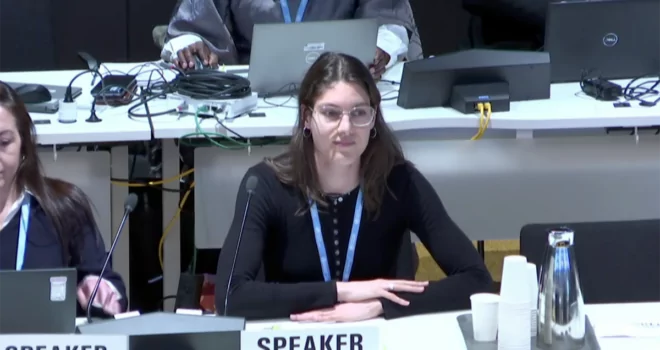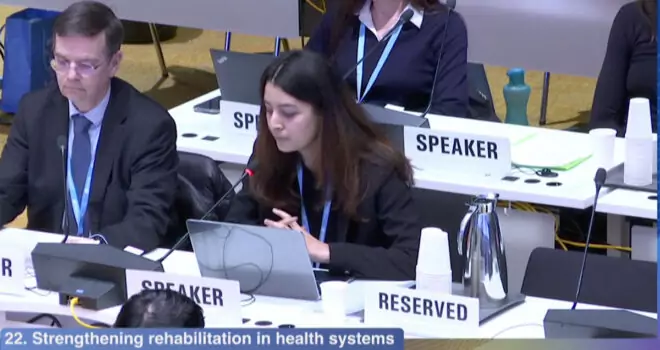Press release originally published here.
INTERASPIRE, a groundbreaking international study, has revealed serious gaps in the implementation of guideline standards for secondary prevention and cardiac rehabilitation (CR) among patients with coronary heart disease (CHD). Conducted from 2020 to 2023, the study involved over 4,500 patients, principally admitted to hospital with an acute heart attack, across 14 countries and all 6 WHO regions, providing real world evidence on the urgent need for improved healthcare systems to deliver effective evidence based preventive care.
The study targeted adults who were hospitalised due to incident or recurrent CHD and were followed up about a year after their hospital event. Participants underwent a face-to-face standardised interview and examination, including blood sampling, with all blood variables analysed at a central laboratory with long term storage of plasma, serum and whole blood. All statistical analyses are age and sex standardised. In addition, the INTERASPIRE study was led by a group of researchers based at the Irish National Institute for Cardiovascular Health and Prevention (NIPC) and the University of Galway School of Medicine; both located in Galway, Ireland.
The INTERASPIRE study is now published as a Fast Track scientific paper in the European Heart Journal [LINK TO PUBLICATION] to coincide with the European Society of Cardiology Congress (August 30th – September 2nd) in London, UK, the largest annual meeting of cardiologists and related health professionals in the world.
The INTERASPIRE study showed wide variation in attainment of risk factor targets between countries by comparison with guideline standards on CVD prevention and key findings included:
- Among those who were smokers at the time of hospitalization, 48% continued to smoke at the time of the interview.
- A striking 24% of participants were classified as obese, with 40% exhibiting central obesity.
- Only 38.5% achieved a blood pressure reading of less than 130/80 mmHg, 32.4% had a blood pressure ≥ 140/90 mmHg and 8.6% had a blood pressure ≥ 160/100 mmHg.
- Only 19.2% attained an LDL-C level below 1.4 mmol/l, 60.5% had an LDL-C ≥8 mmol/l and 28.8% had an LDL-C ≥ 2.5 mmol/l.
- Of the patients with known diabetes, only 56% achieved an HbA1c level of less than 7.0%. Additionally, 9.8% had undetected diabetes, and 26.9% had impaired glucose tolerance.
- Gender disparities were notable, with females less likely to meet health targets for blood pressure (37.4% vs. 38.6% for males), LDL-C (13.7% vs. 18.6%), and HbA1c management (47.7% vs. 57.5%).
- Alarmingly, just 9.0% of participants reported attending cardiac rehabilitation, a Class 1 level of evidence A recommendation in all guidelines on CVD prevention.
- and only 1.0% met the INTERASPIRE definition of optimal guideline adherence.
The findings show widely varying and insufficient international standards of implementation of secondary prevention strategies within the first year following CHD hospitalization, highlighting geographic and gender disparities.
“We must address these disparities in care to ensure equitable access to secondary prevention strategies for all patients,” said Professor David Wood, director of science, strategy and international relations at NIPC, co-principal investigator of INTERASPIRE, and adjunct professor of medicine at the University of Galway. “The INTERASPIRE study underscores the critical need for investment in healthcare systems to reduce variability and improve outcomes for patients with coronary heart disease globally,” said Professor John William (‘Bill’) McEvoy, medical and research director at NIPC, co-principal investigator of INTERASPIRE, and professor of preventive cardiology at the University of Galway.
The INTERASPIRE study calls for unified collaborative efforts among healthcare providers, policymakers, and researchers to promote effective secondary prevention services and ultimately reduce the burden of coronary heart disease worldwide.
The InterAspire Study has been supported by industry Partners Abbott, Amarin, Novartis, Pfizer, Sanofi, Viatris.
References and notes
Further information and full presentation can be found here: INTERASPIRE Principal Results Official Slides
*ENDS*
Notes to editor
Contact Information:
For further information or to schedule an interview, please contact:
Steph Freaney, Programme Manager, NIPC
steph@nipc.ie
+353 87 3733393
Follow us on our social media channels
Website | LinkedIn | Twitter | Facebook
About the National Institute for Preventive Cardiology (NIPC):
The National Institute for Prevention and Cardiovascular Health (NIPC) is an independent medical research and education institute. Based in Galway, Ireland, NIPC is dedicated to reducing the burden of cardiovascular disease through innovative research, education, and advocacy. The institute has a strategic partnership with the National University of Galway, Ireland and collaborates with national and international partners to advance the field of preventive cardiology, with a mission to improve cardiovascular health outcomes worldwide.


